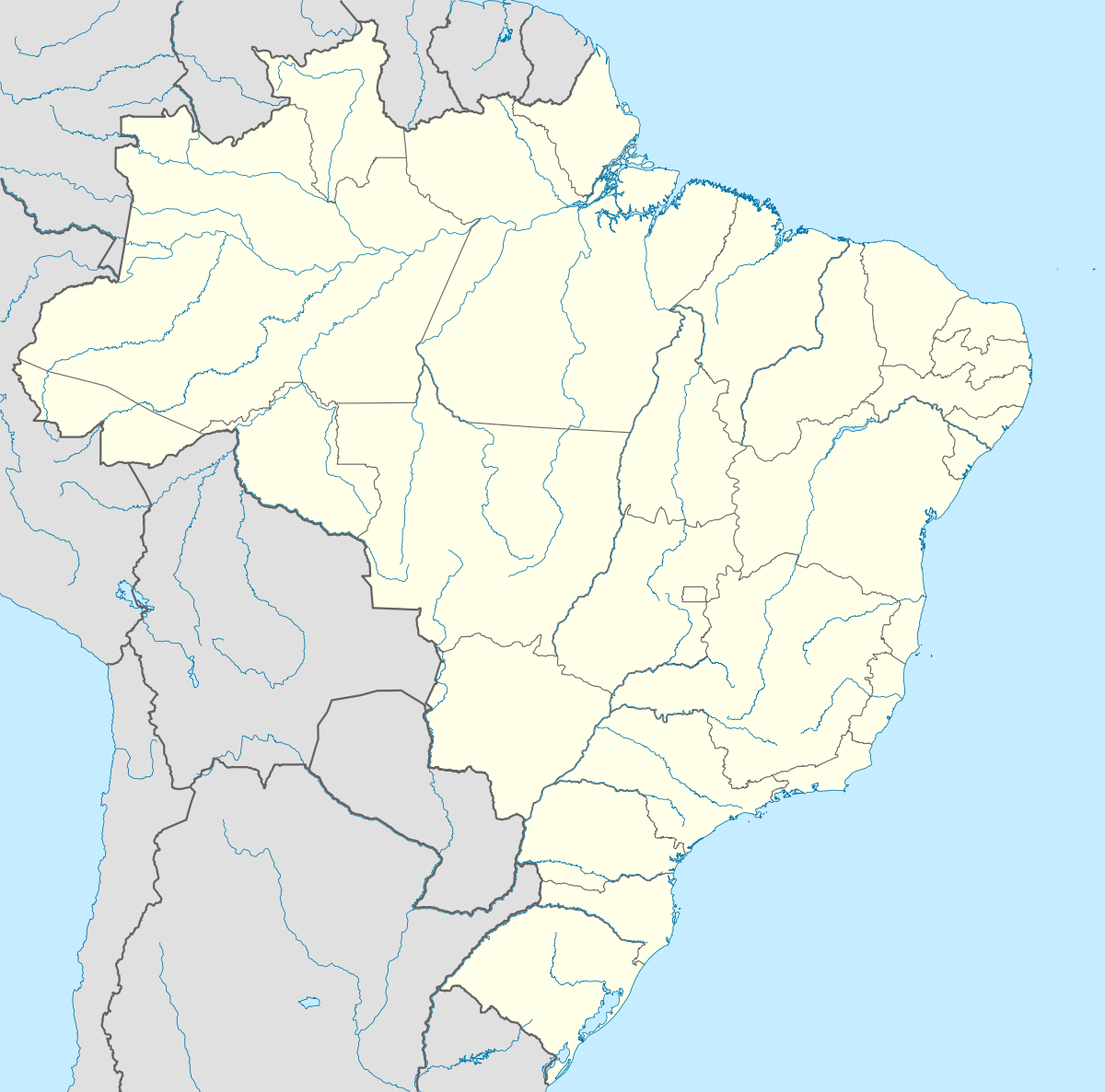Diadema, São Paulo
| Diadema | |||
|---|---|---|---|
| Municipality | |||
 | |||
| |||
 Location in São Paulo state | |||
 Diadema Location in Brazil | |||
| Coordinates: 23°41′10″S 46°36′38″W / 23.68611°S 46.61056°WCoordinates: 23°41′10″S 46°36′38″W / 23.68611°S 46.61056°W | |||
| Country |
| ||
| Region | Southeast Region | ||
| State | São Paulo | ||
| Government | |||
| • Mayor | Lauro Michels Sobrinho (PV) | ||
| Area | |||
| • Total | 30.76 km2 (11.88 sq mi) | ||
| Elevation | 780 m (2,560 ft) | ||
| Population (2015) | |||
| • Total | 412,428 | ||
| • Density | 13,000/km2 (35,000/sq mi) | ||
| Time zone | BRT/BRST (UTC-3/-2) | ||
| Website |
www | ||
Diadema (Portuguese pronunciation: [dʒi.ɐˈdemɐ], uncommonly [dʒɐˈdemɐ]) is a municipality in São Paulo state, Brazil. Belonging to the ABCD Region of Greater São Paulo, it is 17 km (11 mi) distant from São Paulo's central point. Initially part of São Bernardo do Campo, Diadema became a city of its own in 1959. The population is 412,428 (2015 est.) in an area of 30.76 km2 (11.88 sq mi).[1] The annual mean temperature in the city is 19.6 °C (67.3 °F). Its HDI is 0.790.
Although located in the heart of a traditionally industrial region, its main source of income is the service sector, featuring 77 healthcare installations. Diadema is home to a butterfly zoo, a botanical garden, an art museum and an observatory.
History
Since its beginning, Diadema occupation process had one fundamental factor: its geographical location between the coast - Vila de São Vicente - and the plateau - Vila de São Paulo de Piratininga (São Paulo city early name). It was the existence of a connecting road between São Bernardo do Campo and Santo Amaro that provided ways for the early inhabitants to arrive to the neighborhoods in the early 18th century. The avenues that are now known as Antonio Piranga and Piraporinha were originated from this early roads.
Until the 1940s, Diadema was constituted by four neighborhoods belonging to São Bernardo do Campo: Piraporinha, Eldorado, Taboão e Vila Conceição. Dispersed, they were only connected through roads of difficult passage and each neighborhood had its own life. Piraporinha near São Bernardo; Taboão, also connected to São Bernardo do Campo due to the proximity and to São Paulo through Água Funda Avenue. Eldorado, a neighborhood that had unique characteristics, because of the Billings Reservoir, had a greater proximity to São Paulo, to the Santo Amaro region and finally Vila Conceição formed by the farms that once belonged to the Vila Conceição Company.
Notable people
- Fernando Ramos da Silva (1967–1987), child actor who was killed by police
- David Luiz (1987-) professional footballer who plays for Chelsea.
- Francisco de Melo jr (1991-) computer scientist.
References
External links
- (Portuguese) Diadema Official Site

